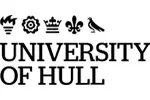

the United Kingdom
University of Hull| The award | How you will study | Study duration | Course start | Domestic course fees | International course fees |
|---|---|---|---|---|---|
| PhD | find out | find out | find out | find out | find out |
Social science research at Hull is focused on creating a positive impact on the real-life conditions and experiences of individuals and communities, at a local, national and global level.
Our work has contributed to the renowned Global Slavery Index, which charts the scale of contemporary slavery, and has affected policy changes at all levels.
To help achieve this, we encourage and develop innovative yet pragmatic approaches to research. This means actively encouraging involvement from both academic and non-academic users to ensure that the main beneficiaries of our research are not only key policy makers and public sector professionals, but are also users of health and social care services, and those working in voluntary and community organisations.
During your four-year programme (seven years part-time) you will research and write a dissertation of 70,000 to 100,000 words on a topic chosen in conjunction with your supervisor.
research in sociology and social sciences fits broadly within five key themes:
This research theme, supported by and associated with the Wilberforce Institute for the Study of Slavery and Emancipation, is concerned with theorising global processes and systems of power, critically interrogating Western ideologies and addressing issues of governance, citizenship and social change in the contemporary world.
Staff: Dr Mick Wilkinson
Staff: Dr Julia Holdsworth
The theme of gender and sexualities, supported by a dedicated Centre for Gender Studies, brings together a critically engaged and intellectually diverse body of work.
Staff: Dr Bev Orton
This emerging area of work draws together studies of contemporary cultural practices, their inter-relationships and their social impacts, including in the media and the digital world.
Staff: Dr Denise Carter, Dr Alexander D. Ornella, Paul Dearey
Staff: Dr Alexander D. Ornella
Staff: Dr Denise Carter, Dr Alexander D. Ornella, Paul Dearey
This theme encompasses work that theorises notions of health, illness and well-being integrated with empirical studies and evaluations of health, social work and social care provision.
Staff: Professor Liz Walker
Staff: Dr Jo Bell
Staff: Dr Ruth Butler
Staff: Dr Karin Cooper
Staff: Professor Monica Magadi
Staff: Dr Liz Price
Staff: Julie Rippingdale
Staff: Dr Luke Cartwright
Criminological research is supported by a dedicated Centre for Criminology and Criminal Justice. It has built on our strengths in evaluative criminal justice and penological research while developing an increasing focus on the research questions posed by new forms of surveillance, terrorism, information and communication technologies, and the transnational agenda in criminology.
Staff: Dr Iain Brennan
Staff: Dr Simon Green
Staff: Dr Helen Johnston
Staff: Dr Mike McCahill
Staff: Dr Mick Wilkinson
Staff: Dr Margarita Zernova
Staff: Dr Bev Orton
Staff: Dr Nicola O'Leary
e sFor entry onto one of our research Master programmes, you should normally have, or expect to obtain at least 2:1 Honours degree (or international equivalent).
For entry onto one our PhD, you should normally have, or expect to obtain, at least Master's degree (or international equivalent) at merit or 60% and above in a closely related subject to your proposed disciplinary field of study. For applicants whose backgrounds do not qualify them for direct entry, we may recommend a 'conversion course' in the form of one of our Masters courses.
Applicants with other qualifications, including relevant experience or a strong professional background, such as criminal justice practitioners, are welcome to apply. We will carefully consider your application.
Intending research students are expected to have relevant prior research training at postgraduate (for PhD) or undergraduate (for MRes or MPhil) level or equivalent.
Your research proposal should clearly set out your research questions, the kind of empirical research they visualise, the reasons why you wish to undertake the research and a general indication of the theoretical background and approach.
Selection is based on the strength and viability of your research proposal and the school's ability to provide supervision in your proposed research area amongst other factors.
Contact University of Hull to find course entry requirements.
Below are some suggested courses at other providers that you may also be interested in:
Luxury Fashion Branding & Consumer Experience Short Course, Winter School
ESSCA School of Management – Online Programs
Find out moreLaw and Economics LLM, LLM
Centre for Commercial Law Studies, Queen Mary University of London
Find out moreBachelor of Business Administration BBA
University of Applied Sciences Europe - Amsterdam
Find out moreIf you do not meet the entry requirements for this course then consider one of these postgraduate preparation courses from another institution:
Graduate Diploma of Engineering (Industrial Automation)
Engineering Institute of Technology
Find out moreGraduate Diploma in Law/Common Professional Examination GDL/CPE
Northumbria University Newcastle
Find out moreThere are 133 other courses listed from University of Hull. A selection of these are displayed below:
Find out more about studying in the United Kingdom